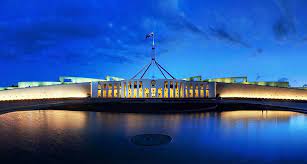During the wake of the 2001 terrorist attacks in the United States, the Australian Government launched an initiative to introduce compulsory levies on insurance policies. These funds were pooled in the interest of offering financial protection to the commercial property sector from terrorist incidents. They were designed as a temporary measure to prevent market failure and the economic impacts following an international refusal by insurance companies to underwrite commercial properties for damage or loss caused by terrorism.
The scheme is organised by the Australian Reinsurance Pool Corporation (ARPC), a statutory authority founded after the 2003 Terrorism Insurance Act. The ARPC claim that their main goal is to offer insurance cover for eligible losses associated with terrorism. This included protections for commercial property and business interruptions. According to the Australian National Audit Office (ANAO), the scheme has a funding capacity of over $13.4 billion.
In recent years, however, concerns have been raised about the effectiveness of this levy and if the money could be utilised elsewhere. Since the scheme’s establishment 18 years ago, there has only been one declared terrorist incident in Australia, the Lindt Cafe Sige in 2014. Even in the aftermath of that crisis, no money was withdrawn for the scheme due to insurers offering to cover the costs of claims from individual insurance company thresholds. As of July 2021, no claims have been paid against the scheme.
This levy causes a Tax on Tax effect contributing to insurance premiums rises. Many consumers are unaware that the levy is being collected on their behalf. After devastating recent events, like the 2019 fires, Queensland cyclones, and the 2020 Corona Virus pandemic, the Australian government has been questioned over the possibility of expanding the scheme to include wider causes that just terrorism.
In response to calls from the Queensland government to include cyclone claims in the terrorism levy, the ARPC stated, “It is important to ensure that our reserve for claims for terrorism be held separately to (or segregated from) the reserve for claims for cyclones.”
The ARPC claimed that splitting or lowering the pool would create a “medium-term financial sustainability issue.”
Despite many insurers and businesses suffering severe losses and financial devastation during the pandemic, the ARPC boasted strong financial performance for the 2020 financial year. Many small businesses and representatives of the arts and entertainment industry have completed detailed submissions begging the Federal Government to utilise the ARPC money to underwrite the COVID-19 risk. The government has not replied to concerns regarding the levy or increase in insurance premiums.


